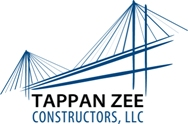Title Page
-
Supervisor/Crew:
-
Conducted on
-
Prepared by
-
Location
1.0 Work at height
-
Guardrails/rigid barricades in place and adequate
-
Hole covers in place and adequate
-
Scaffolding- tagged, signed off, contact name and number
-
100% tie off being followed
2.0 Scaffolds/ ladders/ gang planks
-
Scaffolding- tagged, signed off, contact name and number
-
Ladders- good condition, secured, correct angle, extended past landing
-
Gang planks- secured at one end, correct angle, proper handrails
3.0 Motorized heavy equipment
-
Pedestrian and vehicle traffic seperated
-
Flaggers in place
-
High-visibility clothing used
-
No approach of equipment until acknowledgement by operator
-
Swing radius barricades as appropriate
4.0 Material handling
-
Worker's clear of line of fire when loads moved
-
Loads are stable prior to unstrapping
-
Loads are secured before transit
-
Materials are stored properly, as required
5.0 Confined space entry
-
Permit requirements followed and signed permit available
-
Forced ventilation in place
-
Atmospheric testing done
-
Attendants in place
6.0 Cranes and rigging
-
Crane and suspended load area is clear of unauthorized personnel
-
Swing radius barricaded
-
Tag lines in use
-
Daily rigging inspection documented in team book
7.0 Trenching and excavations
-
Competent person available and daily inspection in team book
-
Benched, sloped, shared properly when deeper than 5 feet
-
Spill dirt, equipment and material storage at least 2 feet from edge
-
No water accumulation in excavations
-
Access and egress provided every 25 feet
8.0 Electrical work
-
Working on live equipment to be avoided unless not possible
-
Proper PPE in place such as flame resistant clothing and voltage rated gloves as needed for live work
-
Work area properly barricaded
-
Live work permits in place
-
All equipment, tools and materials kept minimum 20 feet from overhead lines (up to 350 kV)
9.0 Hazardous energy control/ line breaking
-
Identify and isolate potential energy sources and stored energy such as electrical, hydraulic, pressure and chemical
-
Lockout, tag, verify zero energy prior to working on systems, or equipment
Signatures
-
Auditor








